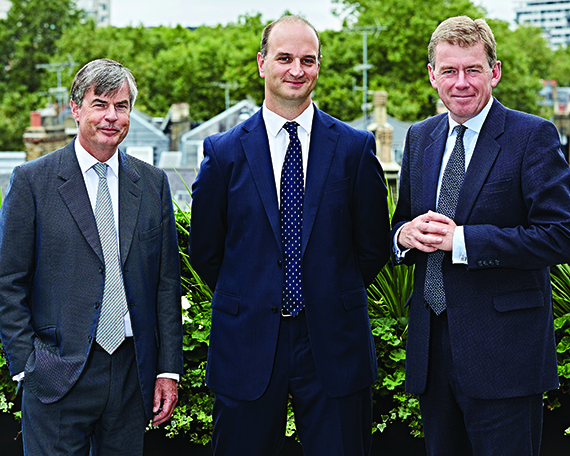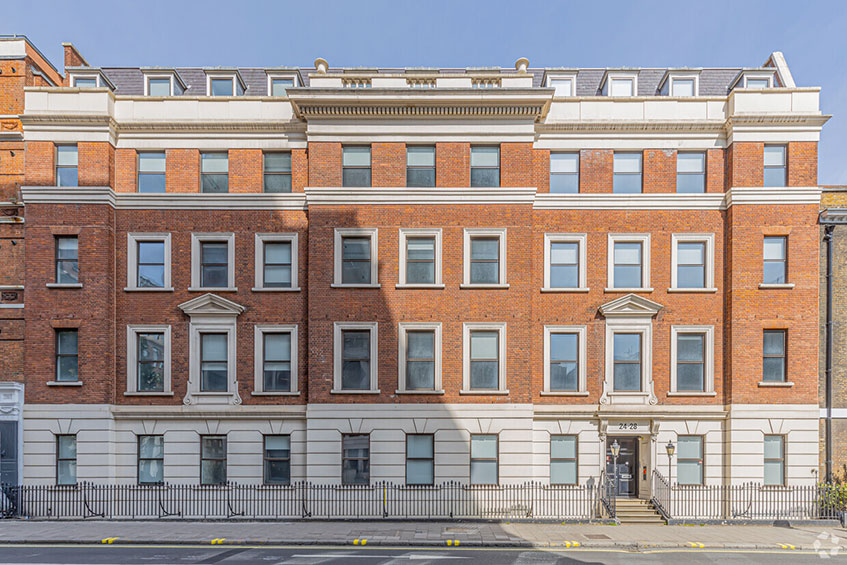
In a time of dwindling transactional volumes and take-up, taking on an additional team of 48 might not seem like the most obvious move.
But in April, Knight Frank acquired Deloitte Real Estate’s asset and property management arm, as the property department of the big four accountancy firm struggled with conflicts arising with its clients elsewhere in the business.
Led by former Tishman Speyer UK managing director Julian Stocks, who joined as partner, the move has bolstered Knight Frank’s ability to gain steady, repeatable income at a time when transactional activity is volatile.
This followed top retail investment agent Charlie Barke joining from Cushman & Wakefield as partner and head of shopping centre and high street investment at the end of last year.
Knight Frank is a firm renowned as an upmarket estate agent, but the commercial side of the business is now fighting to be as big a force as its more traditional residential arm – contributing almost equally to Knight Frank’s £152.6m of profit before tax for the year to 31 March.
Under the leadership of head of commercial John Snow, the business is putting in place a three-year plan that it expects will add 100 more fee earners with an emphasis on consultancy, and balance out its transactional income focus, which at present makes up for 80% of its profit.
Stocks is looking to diversify his team’s income after a period of bedding in, and the business is targeting international growth to help offset volumes in areas including retail.
The path Snow is setting is one the heads of all of major property advisory firms must consider as they battle with a collapse in bread-and-butter fees from investment and leasing deals.
“We reckon on another 100 [new fee earners], but the principal focus will be consultancy and property management. It will be building our ratings teams; it will be building our consultancy teams,” explains Snow.
“It’s not going to be doubling the size of our City office or West End team, where I think we’ve got some fantastic individuals.”
The focus is now on the professional side of the business and bringing on highly regarded client support staff such as Anthony Duggan, who joined as head of capital markets research this month to work alongside head of commercial research Lee Elliott and chief economist James Roberts.
Stocks piling
This approach is exemplified by the recruitment of Stocks’ team, which is retained to look after real estate and provide overarching strategic advice
for clients including The Mercers’ Company, The Pollen Estate, Imperial College Endowment Fund and the London Legacy Development Corporation.
Stocks has been integrating his team with that of Tim Robinson, head of property asset management, during the first six months of his tenure but now has his sights set on growth.
That growth, says Stocks, will come from three areas – taking on more asset management instructions where Knight Frank acts as client representative across portfolios; increasing property asset management instructions both in London and across the UK regions; and individual asset-specific consultancy mandates.
“On the asset management side, we act for family offices or high net worths either on single assets or a raft of assets. That is an interesting area because there is clearly a link with the strong residential team there is here, which has the same clients,” says Stocks.
“Once they trust you, you get on and do everything, pretty much. And so we’re doing everything from refurbishing redevelopments to just doing the main property management and lettings – the whole thing for those that don’t have a full team in house.”
Knight Frank now has almost 510 fee earners, including 200 partners and 100 associates, as well as 200 support staff throughout the business. Its last three-year plan saw it add 100 people to the business and during that period. In London it has lost only five partners and associates to rivals, and eight in the UK regions.
Such continuity helps the company win and retain business throughout project life cycles, says Snow.
“Our teams stay together. If you look at a leasing model, it’s probably a six-year span from the time you take on an instruction to the time you finally complete it.
“So, working for Land Securities on Nova, [the 480,000 sq ft office project in Victoria, SW1], the same team that pitched for it are still at Knight Frank now and that’s important. Clients don’t want change in that regard.”
As a result, despite the subdued trading environment in the UK, the company has had a strong run and been involved in some of 2016’s most notable deals, including two that have helped debunk uncertainties around the London market in the wake of the result of the EU referendum.
In July, it sold the 227,689 sq ft 33 Central on King William Street, EC4, to Wells Fargo for £300m on behalf of HB Reavis, for the US bank’s new European headquarters. Last month, it brokered Apple’s 500,000 sq ft leasing deal on behalf of Battersea Power Station.
In addition to property and asset management, another area that brings in steady, professional income for Knight Frank is valuations. Led by Rupert Johnson, the department values 30% of the IPD index.
Retail woes
The need for Knight Frank’s fresh focus on professional services is highlighted by the dearth of activity within the sub-sector that Barke operates in. Shopping centre investment in the UK is likely to be at a record low this year.
“Retail has been on a little bit of a downward trend since the middle of 2015, so it wasn’t necessarily a Brexit-related thing. The peak probably came a bit earlier than it did the other sectors, and it doesn’t take much bad news to turn people away from retail. Plus we have had collapses from the likes of BHS and Store 21,” says Barke.

“If you look at IPD numbers, retail has been an underperformer for the past few years so, if you’re an institutional investor and you’re looking at that historic performance, you’re thinking, ‘Do I really want to improve my retail weighting at the moment?’”
The doom and gloom in the sector may see it take some years to fully rebound, but Barke is hopeful that more investors start to take a “long-term horizon”.
“Retail will have its day again. It looks intrinsically good value. We’re still trading at a big discount to where values were in 2007. Rents have largely been rebased.
“Regional retail will be one of the big beneficiaries of the rates revaluation in the next few years. Retail will probably be an outperformer by the end of the decade. It’s probably just not going to be happening in 2016,” says Barke.
Global growth
To expand the business, Snow will also be looking further afield. Around 60%-70% of Knight Frank’s commercial profit comes from the UK but the business is steadily expanding its overseas presence as it aims to compete with the two advisory big guns of the sector, CBRE and JLL.
The company opened its first overseas office in Geneva in 1964, and its first office in Africa – where it is the continent’s biggest property adviser – in Lagos, Nigeria, in 1965.
Now it is strengthening its bench in the Far East. It appointed Piers Brunner as chief executive of its greater China region at the end of last year from Colliers International, and Alan Liu as managing director of China from MVG Capital in May.
In India, Snow has been transforming the business from one focused on facilities management to one that is targeting transactions as the market matures and more overseas capital starts to flow in.
“The investment market in India hasn’t really taken off yet, but the tenant rep, occupational market is very strong and we’re absolutely there on the back of it,” says Snow.
“From where we sit, it doesn’t take a great deal. So, recruit two or three very good individuals – we recruited Shishir Baijal [as chairman of India in 2013] and he attracted some outstanding people – and that’s the model for us. We’re not suddenly going to take over a business because, for us, the culture, digesting it, is arguably too much.”
Professional services income may not be as eye-catching as the major leasing and investment deals that Knight Frank’s commercial team is best known for, but it will be key for the success of the business in what appears likely to be a subdued period.
Knight Frank has traditionally veered away from making the corporate acquisitions of some of its more bold rivals, but with the addition of Stocks’ property and asset management team, it may have found an alternative way of keeping up with its competition.

KNIGHT FRANK’S LANDMARK DEALS OF 2016
- Date: July
- Asset: 33 Central, King William Street, EC4
- Client: HB Reavis
- Price: £300m
Sale of 227,689 sq ft headquarters to US bank Wells Fargo in biggest vote of confidence by overseas financial institution following the EU referendum result.
- Date: May
- Asset: 61-67 Oxford Street, W1
- Client: Chinese Estates Holdings
- Price: £182.8m
Purchase of newly developed Zara store and mixed-use development on Oxford Street from British Airways Pension Fund on behalf of one of London’s most active new overseas investors.
- Date: September
- Asset: Battersea Power Station
- Client: Battersea Power Station Development Corporation
- Size: 500,000 sq ft
Last month, it brokered Apple’s 500,000 sq ft leasing deal on behalf of Battersea Power Station.









